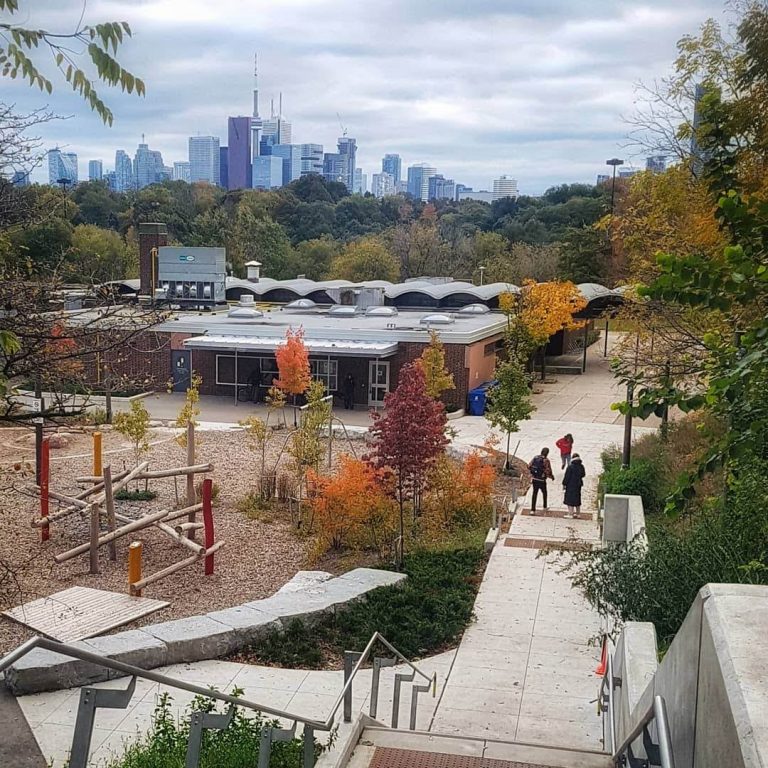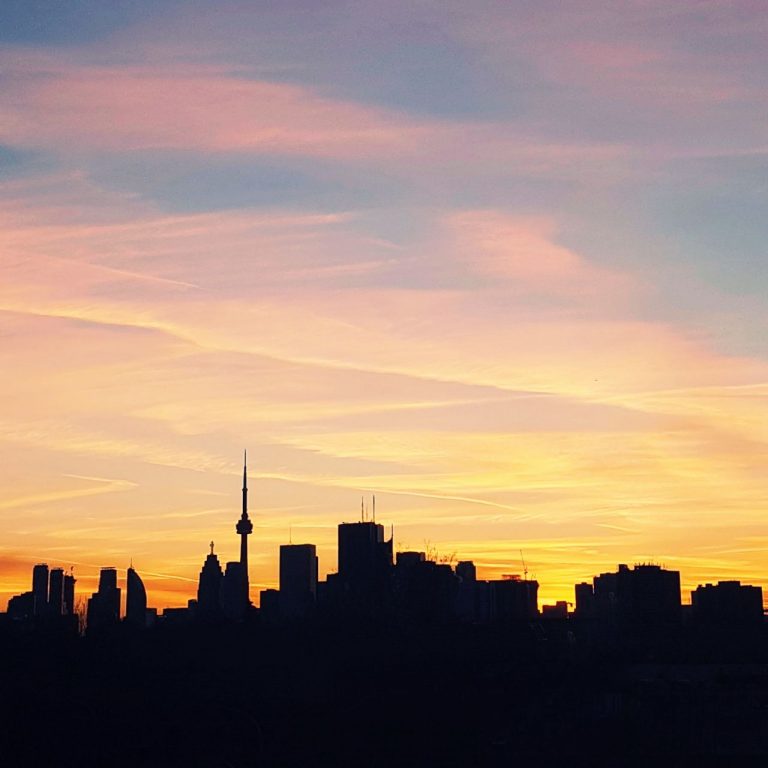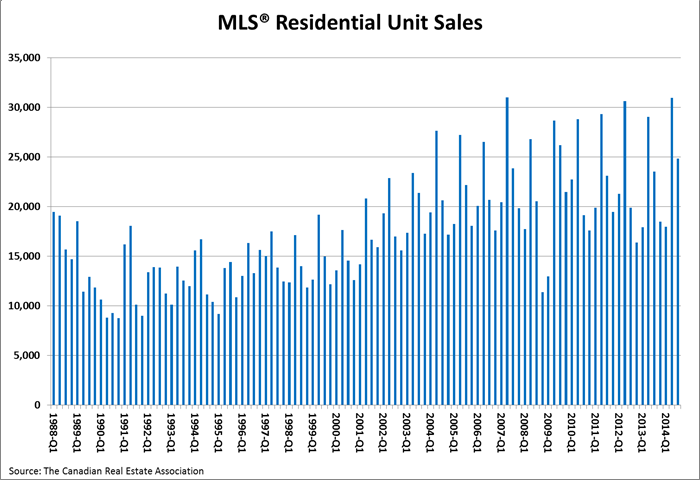Monthly Newsletter: July 2007
Happy Canada Day everyone! This is one of my favourite long weekends as it signifies that the prime summer months are upon us and that we are at the half-way point in the year. It gives you pause to reflect on the year thus far as well as give yourself time to think about what you intend to accomplish for the duration of 2007. It also allows us to celebrate being Canadian. Having just come back from holidays in Israel and then Amsterdam (one of my favourite cities in the world), it’s still nice to come back home to Toronto. I’ve traveled extensively and Canada is still the number one country in the world. We are very lucky to be able to live here so we should celebrate it with passion.
What’s so great about Toronto and the rest of Canada? For me there are a number of things. Toronto is one of the most multicultural places in the world. I like that, maybe because I’m part Indian, part Portuguese and was born in the U.K. It’s great to live in a town with so many ethnicities that share the same space. Our restaurants are honestly second to none. I live on the Danforth where you can sample some of the finest meals available in the city. A million people who descend upon the area for “Taste of the Danforth” in August can’t be wrong. We have relatively low crime rates compared to other major North American cities. And of course, the land that is Canada is one of the largest and most geographically diverse on the globe. Drive from Banff through the Rockies at one end of the country or along Sydney’s maritime coast on the other and you’ll see what I mean. I also like the fact that we have four seasons so we get to experience the coldest of the cold as well as the hottest of the hot. Hanging out on the Mediterranean Sea was great for a week, but honestly that constant desert type heat all the time would be a bit too much for me.
We do pay a considerable amount of income tax here though and some experts question how good our standard of living really is. There was a very interesting article in Macleans a few weeks back that discussed why when unemployment rates are so low and the dollar is booming (which is great when you go on holidays by the way), that many Canadians are just scraping by. Canada’s net worth has reached an all-time high of $4.9 trillion and oil exports have been steadily increasing, yet it doesn’t seem like the average Canadian is really that much further ahead.
For the vast majority of workers, personal disposable incomes, while increasing have actually failed to keep pace with economic growth over the past five years. Prices of goods and services have risen at a rate higher than the gains in salaries. Just look at the price of gas! Driven by rising commodity prices, “gasoline and electricity rates have gone up way faster than inflation and incomes” states Jeffrey Gandz of the Ivey School of Business. Good paying manufacturing and production jobs have all but disappeared. Unemployment may be at an all-time low but people with lower paying salaries often need to work two jobs to make ends meet.
In addition to oil, the real estate market in most major Canadian cities has seen unprecedented growth over the last few years. Homes have gotten steadily less affordable since 2000 – in Toronto a two-storey home can consume nearly half of your household income. My dad bought his first house in Toronto many years ago for under $30,000. I deal with first time buyers regularly who have to pony up a half a million just to get into a nice centrally-located income property. So a lot of people in Toronto have to go into debt big-time just to keep a roof over their head. The low interest rates that allowed so many people to get into the game will eventually start to rise and some of these folks will squeezed, and hard! If the dollar is up and the economy is booming, yet you are paying tons of interest on your mortgage and the cost of goods and services are higher than they’ve ever been, then you are simply aren’t going to be able to get ahead that easy. Now I don’t know if the situation is any better in other similar sized American cities, but going forward this is a problem that’s likely going to worsen. Despite this I still would rather struggle in Toronto than anywhere else.
Speaking of how hard it is to try and get ahead when real estate prices are so high, I’d now like to briefly chat about the new Toronto land transfer tax that is going to be implemented. A few months ago I talked about a new home buying tax was being proposed to help the Municipal government deal with some of its shortfalls. It was met with a TON of resistance, but that doesn’t matter because Mr. Miller still seems to be moving forward with it. Since I already gave you my thoughts on how ridiculous this tax is, I thought I would share with you the official position of the Toronto Real Estate Board: The following press release was issued last week:
The Toronto Real Estate Board has told the City of Toronto that its proposal to charge a second land transfer tax treats home buyers unfairly. TREB’s comments were made in a formal presentation to the City’s Executive Committee earlier this week. If the City moves forward with the proposal, the average Toronto home buyer will pay another $4,200 in land transfer tax. That is a 100 per cent increase, and would give Toronto the highest land transfer taxes in Canada and the second highest in North America.
“A second land transfer tax discriminates against home buyers. The City doesn’t provide any land transfer related services, so this tax is just a way of forcing home buyers to pay for services for everyone. That, simply, is unfair,” said Dorothy Mason, President of the Toronto Real Estate Board.
TREB also pointed out that the proposed second land transfer tax is most unfair to those who can least afford it – people who have small down payments and, therefore, can only qualify for a mortgage by also paying for mortgage insurance. “Many home buyers will have no choice but to take money from their down payment to pay this tax, which would mean extra mortgage interest and higher mortgage insurance premiums. For the most vulnerable, this means that the second land transfer tax will actually cost over $15,000. The City will literally be forcing people to take out a mortgage to pay a tax. That is unfair,” Mason said.
TREB also noted that Toronto residents and businesses can’t even expect that the new money the City collects from this tax will result in any improved services. The Mayor and City staff has admitted that the money the City takes from home buyers will be used to fill the holes in the City’s current budget, not to expand or improve services. It’s not fair that home buyers will be paying more for the same service”, Mason said. TREB plans to continue opposing the implementation of a second land transfer tax in Toronto. “A second land transfer tax will make the dream of home ownership more difficult to achieve. Toronto’s REALTORS are protecting the interests of home buyers by strongly opposing the City’s proposal. Just in the last week, hundreds of REALTORS and the public have sent emails to the Mayor and all City Councillors telling them that his tax is a bad idea. We plan to keep up the fight,” said Mason.
I suggest that you all stayed tuned to this one as it will directly affect all of us who buy real estate in Toronto in the future.
Before I sign off, I would like to just share a few observations about income property activity so far this year in the GTA. After the first six months of sales in 2007, there has been little to distinguish between this and the prior two or three years. Sales are still brisk. Prices are still high. Rents are still stable despite the huge increases in prices in some neighbourhoods. In other words, forget about looking to cap rates to get a sense of where the best market opportunities are, especially for owner-occupied income properties. In the nicest neighbourhoods properties with rental suites are still trading at unheard of multiples.
When I do my analyses, I look at all properties that have minimum three kitchens. My assumption is that with three kitchens there must be some sort of rental component to the property. Now sometimes we find European homes that are for one family that might have only two washrooms but have a kitchen on each floor. Even though these are not proper income properties per se, they often do have the ability to be converted to into units. As I have mentioned before, this doesn’t allow me to adequately categorize duplexes, since most listings that show two kitchens are often just houses with basement apartments. I’ve been saying to TREB for years that if a house has two equal size rental units then it should be mandatory that it be classified on MLS as duplex. They don’t seem to agree though.
Here are the income property (3 kitchens) sales statistics for C01, Bloor Street down to the water and west of Yonge which encompasses most of Central Toronto:
Field Count Mean
(Average) Median Mode Low High
List Price 72 $594,111 $571,450 n / a $340,000 $1,399,000
Original Price 72 $601,825 $584,450 n / a $349,000 $1,499,000
Sold Price 72 $593,021 $559,000 $610,000 $335,000 $1,350,000
% List 72 100.01 98 n / a 82 123
Taxes 71 $3,819 $3,481 n / a $1,570 $8,924
Bedrooms 72 4.6 4 4 2 9
Washrooms 72 3.4 3 3 2 8
Days On Market 72 28 15 n / a 2 185
Here are the income property stats for E01, E02 & E03, the east districts including Riverdale, the Danforth, Leslieville and the Beach:
Field Count Mean
(Average) Median Mode Low High
List Price 94 $492,937 $434,450 n / a $234,900 $2,699,000
Original Price 94 $543,386 $434,450 n / a $234,900 $4,899,000
Sold Price 94 $487,282 $431,144 $340,000 $230,000 $2,811,000
% List 94 98.5 98 99 72 123
Taxes 92 $3,656 $2,958 n / a 1645.1 $16,015
Bedrooms 94 4.3 4 4 1 9
Washrooms 94 3.5 3 3 2 11
Days On Market 89 26 13 7 1 172
The next chart is quite interesting. In the midtown areas of C09, C10 & C11 there were only a handful of income property sales in the past six months. Note how high the average prices are:
Field Count Mean
(Average) Median Mode Low High
List Price 10 $890,900 $911,500 $995,000 $599,000 $1,399,000
Original Price 10 $890,900 $911,500 $995,000 $599,000 $1,399,000
Sold Price 10 $916,310 $864,000 $985,000 $599,100 $1,467,000
% List 10 102 98 n / a 92 143
Taxes 10 $6,713 $6,514 n / a $4,104.45 $12,637.36
Bedrooms 10 6 6 8 3 8
Washrooms 10 4.6 4 4 3 8
Days On Market 10 37 26.5 n / a 7 156
(Calculations are performed excluding zero-values)
Finally here are the income property stats for W01, which encompasses High Park and the parts of the west side:
List Price 53 $562,558 $526,999 $519,900 $200,000 $1,100,000
Original Price 53 $566,126 $529,000 n / a $200,000 $1,100,000
Sold Price 53 $567,894 $531,370 $540,000 $250,000 $1,450,000
% List 53 100.72 98 98 88 132
Taxes 52 $3,977 $3,631 $3,888.42 $1,869 $8,684
Bedrooms 52 4.4 4 4 2 9
Washrooms 52 3.6 3 3 2 8
Days On Market 53 32 13 8 1 241
As you can see with the exception of midtown there have been many sales of income properties and the average prices as I alluded to above has been in excess of $500,000. Consider that many single family homes in these same areas trade for the same of even more, so it’s still good to get some revenue out of these steadily increasing properties.
Next month I will finally be unveiling our new look website and will be releasing “Live for Free” in a book format so that I can continue to spread the good word about income properties. Enjoy the sun and if you are traveling this summer, have a safe, fun and relaxing journey.
P.A.



